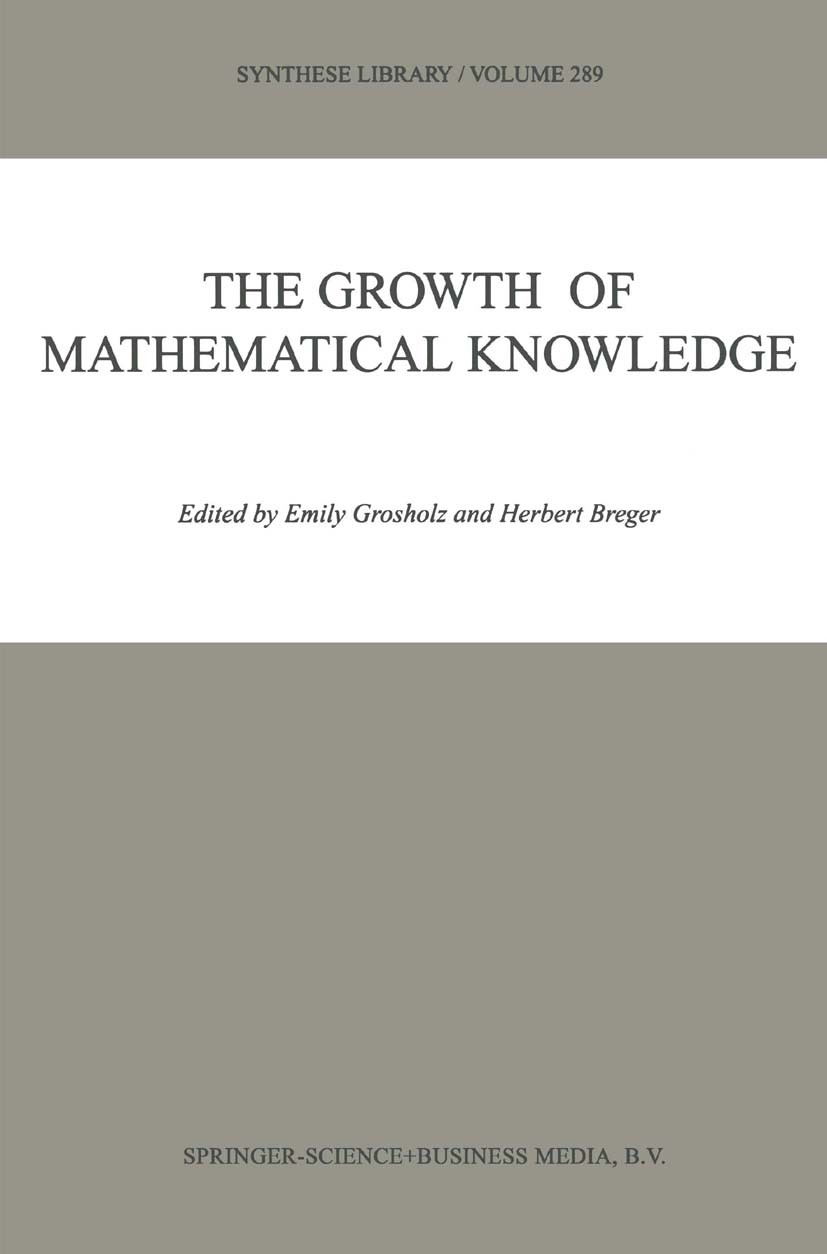| 书目名称 | The Growth of Mathematical Knowledge | | 编辑 | Emily Grosholz,Herbert Breger | | 视频video | http://file.papertrans.cn/911/910982/910982.mp4 | | 丛书名称 | Synthese Library | | 图书封面 |  | | 描述 | Mathematics has stood as a bridge between the Humanities and the Sciences since the days of classical antiquity. For Plato, mathematics was evidence of Being in the midst of Becoming, garden variety evidence apparent even to small children and the unphilosophical, and therefore of the highest educational significance. In the great central similes of The Republic it is the touchstone ofintelligibility for discourse, and in the Timaeus it provides in an oddly literal sense the framework of nature, insuring the intelligibility ofthe material world. For Descartes, mathematical ideas had a clarity and distinctness akin to the idea of God, as the fifth of the Meditations makes especially clear. Cartesian mathematicals are constructions as well as objects envisioned by the soul; in the Principles, the work ofthe physicist who provides a quantified account ofthe machines of nature hovers between description and constitution. For Kant, mathematics reveals the possibility of universal and necessary knowledge that is neither the logical unpacking ofconcepts nor the record of perceptual experience. In the Critique ofPure Reason, mathematics is one of the transcendental instruments the human mi | | 出版日期 | Book 2000 | | 关键词 | History of Mathematics; Ludwig Wittgenstein; axiomatization; epistemology; mathematics; philosophy of mat | | 版次 | 1 | | doi | https://doi.org/10.1007/978-94-015-9558-2 | | isbn_softcover | 978-90-481-5391-6 | | isbn_ebook | 978-94-015-9558-2Series ISSN 0166-6991 Series E-ISSN 2542-8292 | | issn_series | 0166-6991 | | copyright | Springer Science+Business Media B.V. 2000 |
The information of publication is updating

|
|
 |Archiver|手机版|小黑屋|
派博传思国际
( 京公网安备110108008328)
GMT+8, 2026-2-8 14:34
|Archiver|手机版|小黑屋|
派博传思国际
( 京公网安备110108008328)
GMT+8, 2026-2-8 14:34


